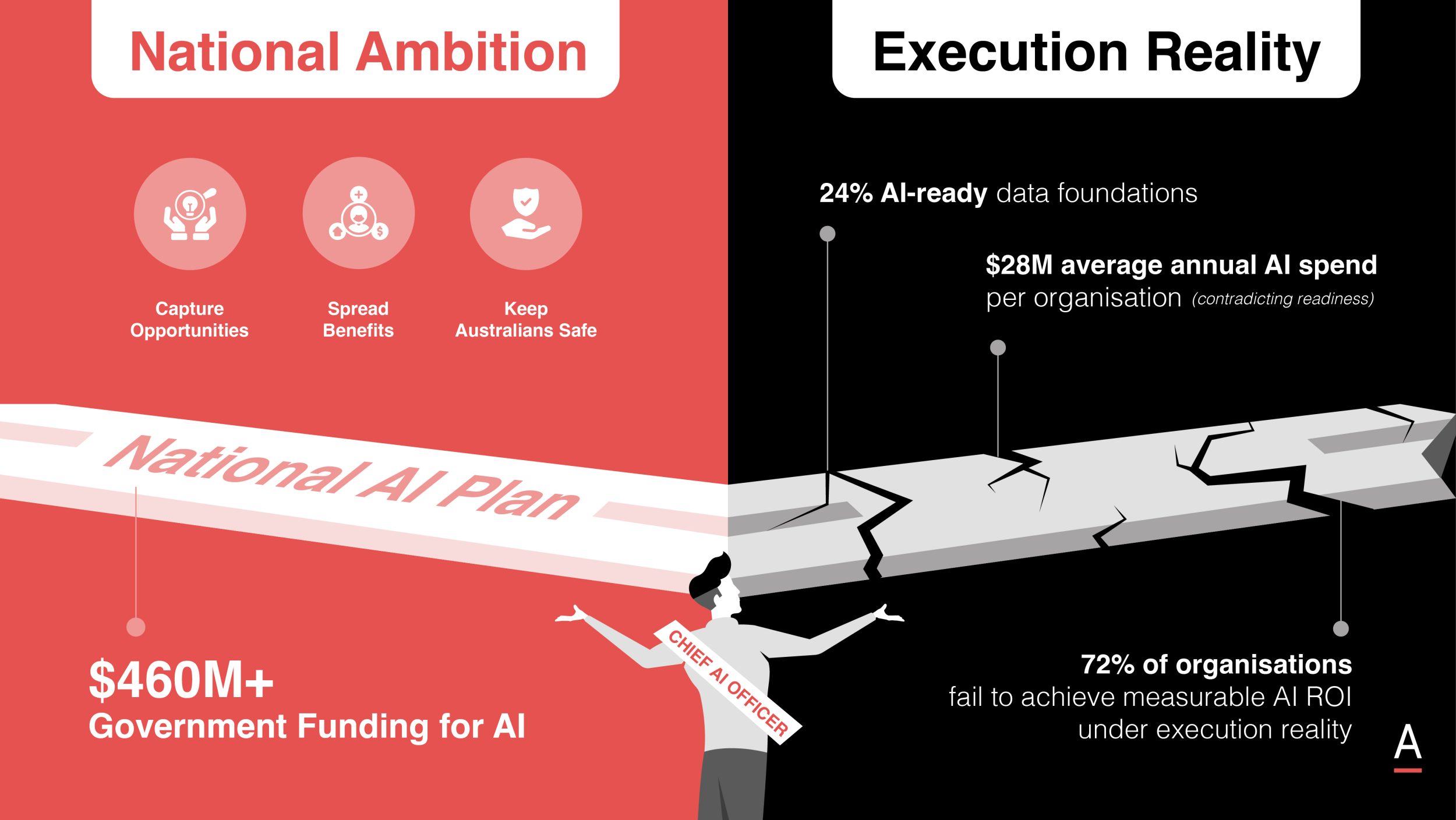Gabby Fredkin, Head of Analytics & Insights at ADAPT, shares insights on AI readiness and data-driven practices in Australia.
Results from ADAPT’s recent survey identified “creating a data-driven organisation” as the top business goal, emphasising the need for useful, fact-based insights to aid decision-making.
Technology modernisation is critical and is a primary goal for CIOs, along with security, operational efficiency, and cost-effectiveness. They CIO survey reveals that only 20% feel prepared to harness AI, reflecting a general lack of readiness.
Gabby sees this as an opportunity for improvement through collaboration and workshops, noting that good data governance and mature data and information architectures significantly enhance AI preparedness.
He explains that organisations with strong data governance are four times more likely to be prepared for AI, underscoring the critical role of standardised processes and security in improving data quality.
A productive data culture and end-user literacy make organisations nine times more likely to be prepared for AI. Gabby advocates for proactive relationships with executive leadership to build organisational data literacy. Efforts to improve data literacy should start higher up in the organisation.
He also touches on the practical challenges of implementing AI, such as data quality issues and the necessity of having a robust information architecture.
Gabby recommends using these insights to drive data and AI strategies forward, highlighting the value of strong governance, cross-functional collaboration, and clear ethical frameworks in successfully deploying AI.
Key Takeaways:
- Creating a Data-Driven Organisation: The CIO Survey identified “creating a data-driven organisation” as the primary business goal, emphasising the need for useful, fact-based insights to aid decision-making.
- Critical Role of Data Governance in AI Preparedness: Organisations with strong data governance are four times more likely to be prepared for AI. Good data governance, mature data architectures, and standardised processes significantly enhance AI readiness.
- Importance of Data Culture and End-User Literacy: A productive data culture and end-user literacy make organisations nine times more likely to be prepared for AI. Proactive relationships with executive leadership and efforts to improve data literacy at higher levels in the organisation are crucial for advancing AI and data strategies.





























